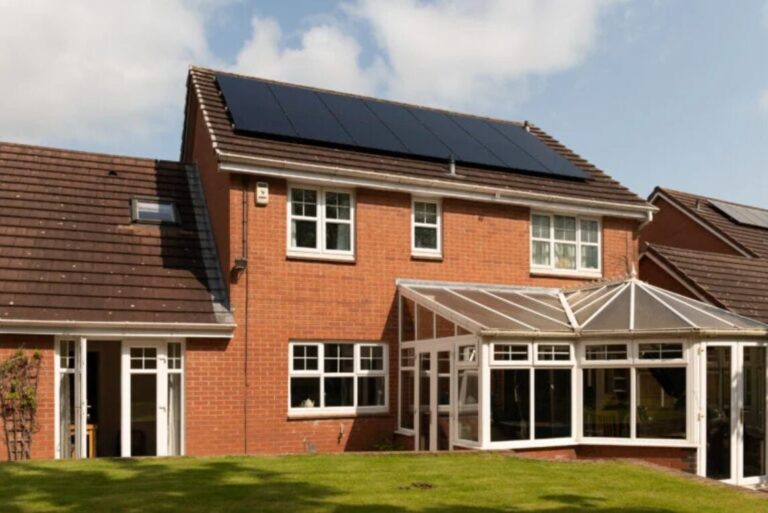British energy company Good Energy Group PLC has announced that an export tariff of 40 cents per kilowatt hour will be available to customers of its solar business Good Energy Solar.
The new export rate, which is fixed for 12 months, is double the company’s previous “Solar Savings Exclusive” rate, and Good Energy claims it is the highest rate available on the market. In March 2023, the country launched its first export tariff, ‘Power for Good’.
Good Energy customers who have installed a solar panel and battery storage through Good Energy Solar, have a smart meter and are on one of Good Energy’s supply tariffs can benefit from the higher export payments.
Tom Parsons, sales and manufacturing director at Good Energy, said: “Since Good Energy launched HomeGen – the first-ever export tariff for UK solar homes – twenty years ago, we have been committed to helping people become renewable energy producers themselves . . With this new export rate, we continue to make micro-generation financially meaningful.
“Doubling what was already a competitive export rate to match the best rates in the market demonstrates exactly that: providing a total solution for green-conscious customers and offering a range of products that help them reduce CO2 emissions at the same time. reduce and save money. By focusing on multiple products and rates that work together, we are working to encourage customers to form a deeper and broader relationship with us and increase their overall lifetime value.”
Rewarding existing energy customers
Good Energy says the announcement of its increased export tariffs reinforces its commitment to rewarding its existing customers – something that has been a controversial topic in the industry of late.
If reported in depth on our sister site, Current±, in May, UK energy regulator Ofgem has opened a consultation on lifting the ban on acquisition-only (BAT) tariffs.
Acquisition-only tariffs are a way for energy suppliers to entice new customers to switch suppliers by offering them cheaper prices. A ban was enforced in April 2022 to protect consumers during the energy crisis, leaving 3.2 million people without electricity in 2022.
The industry’s response was generally negative. Rachel Fletcher, economics and regulatory director at Octopus Energy, said the removal of the BAT would herald a return to the ‘Wild West’ of the energy industry.
She added: “The loyalty penalty was a major reason why 30 energy companies went bankrupt, ultimately adding billions of pounds to energy bills. Ofgem was right to ban these unsustainable ‘Del Boy’ tactics, and it would be madness to bring them back now.”
On July 30, the regulator announced it would retain the BAT to “better understand its impact on the retail market”.
With the government’s climate policy aimed at cutting consumer costs, it has promised that the switch to renewable energy will reduce bills. Ofgem’s own data shows that the The number of households with energy debts and payment arrears has increased by 20% since 2023with 2.3 million households in debt and payment arrears; a state-owned company, Great British Energy, should alleviate this pressure, improve Britain’s energy security and reduce pressure on suppliers.


